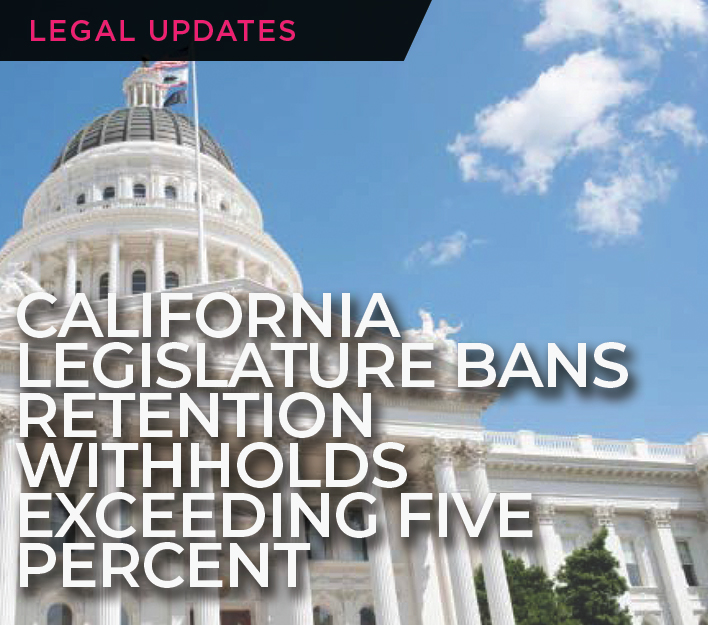By Daniel R. Spencer, Esq. of Finch, Thornton & Baird, LLP.
Governor Newsom signed Senate Bill 61 into law on July 14, 2025, after the Bill received unanimous approval in both the House and the Senate. The Bill creates a new section of the Civil Code, which provides for a five percent cap on retention for private works projects. This five percent limitation applies to prime contracts and subcontracts of all tiers entered into on or after January 1, 2026. The statute provides exceptions for: (1) non-mixed-use residential projects under five stories; and (2) circumstances where a subcontractor fails to provide a required payment/performance bond. The new statute also provides for an award of attorneys’ fees incurred to enforce the statute. The sponsor of the Bill, Senator Dave Cortese, champions this new statute as a “big win for small business,” which will create a more stable and equitable business environment. This new legislative enactment could significantly improve project cashflow while preventing project owners from allocating excessive completion risk to prime contractors and their sub-tiers.
Construction contractors should review all contract forms and templates to ensure compliance with the new law. Unless an exception applies, all private works contracts executed on or after January 1, 2026 can no longer withhold retention in excess of five percent. Please contact Randy Finch or Daniel Spencer of Finch, Thornton & Baird, LLP at (858) 737-3100 for additional strategies to avoid potential attorney fee exposure arising from this new statutory requirement.
FOR MORE INFORMATION
Read the California Legislative Counsel’s Digest here.
DISCLAIMER: This new law advisory is a publication of Finch, Thornton & Baird, LLP, for the purpose of providing information relating to recent legal developments. It is not intended, nor should it be used, as a substitute for specific legal advice, and it does not create an attorney-client relationship.


